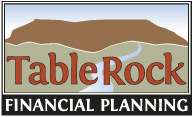Financial Planning Blog
 Are 401k Plans a Failure?
Are 401k Plans a Failure?
For most of us in the private sector, the days are long gone where our company provided for our retirements with a defined benefit pension plan. Along with Social Security and personal savings, the defined benefit pension--where your employer promised to pay you a certain amount for the rest of your life--was a key element of the retirement planning "three legged stool". Like it or not, most are now relying solely on Social Security and our own personal savings and investments--a large portion of which is likely in an employer's 401k plan.
Much has been written and said lately about the failure of 401k plans to adequately provide for workers' retirements. Many 401k plans do have some significant issues (which will be discussed), but blaming the 401k plan system is ridiculous. First or all, the 401k was not initially meant to do this much heavy lifting--it was intended to supplement Social Security and other pension plans. The 401k is simply a tool, but many of us have not used this tool effectively. Consider our own failures:
- People start saving for retirement too late--not giving the power of compound growth adequate time to work its magic.
- People don't save enough--choosing current consumption over future financial security.
- People underestimate how much money they will need to provide an adequate income in retirement.
- People don't invest wisely--more often than not, failing to obtain competent, objective financial advice.
- Among our investing failures--
- Holding an unhealthy portion of our accounts in our own company stock--not understanding the additional risk of undiversified portfolios, or the potential for losing job and retirement savings in one quick flash (the Enron scenario).
- Lack of diversification across asset classes--e.g. bonds, large and small company stocks, US and international stocks.
- Taking inappropriate amounts of risk--whether it is over-estimating our emotional tolerance for market volatility, or remaining too aggressively allocated to stocks as retirement nears.
- Taking too little risk--not understanding the need for some level of risk to achieve adequate investment growth, and underestimating the tremendous toll even low inflation takes on the purchasing power of our investments.
- Panicking during market downturns, and selling at market lows. Buying back in when the market has risen again to a point "where it is safe to get back in".
Although the individual investor can take much of the blame for the ineffectiveness of the 401k, the sad truth is that many 401k plans are poorly constructed, and have excessively high fees that work against the investor. These fees, inadequately disclosed and understood even by plan sponsors, act as a nasty headwind preventing employee accounts from fully benefiting from market growth. The problem of high fees is especially prevalent in smaller 401k plans, but there have been many well documented issues with larger employee plans, such as Wal-Mart and Caterpillar.
In a follow-on post 401k fees will be discussed, along with some suggestions on what you can do if your employer 401k (or 403b or 457) is fee-laden dog of a plan.
Next page: Disclosures



